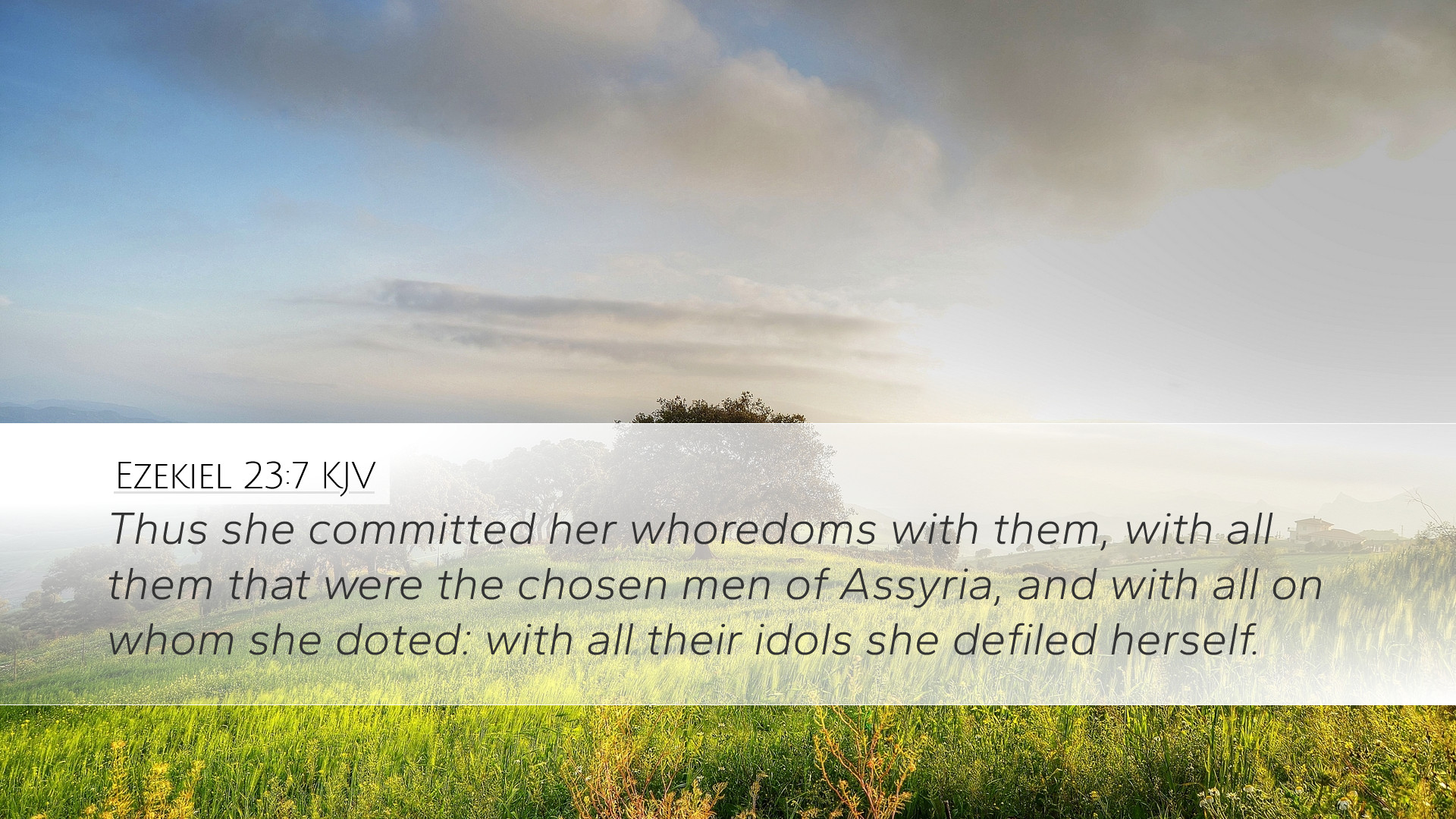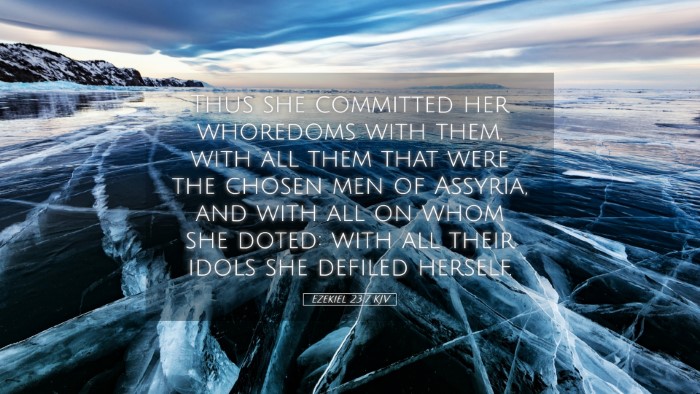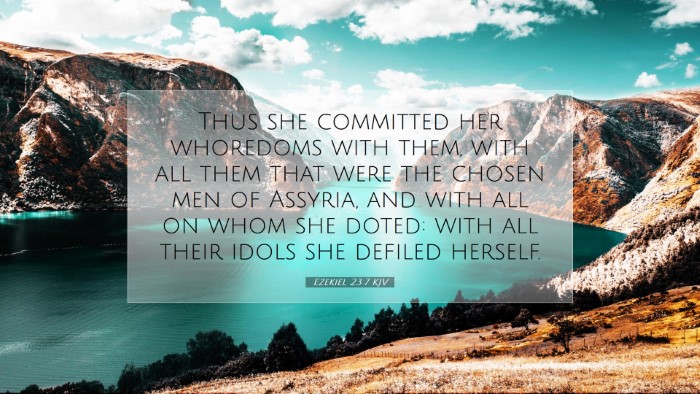Commentary on Ezekiel 23:7
Ezekiel 23:7 reads:
"And her whoredoms and her abominations were from the idols of her youth: and she poured out her whoredoms upon them."
Introduction
The verse Ezekiel 23:7 serves as a critical reflection on the spiritual infidelity of the two sisters, Oholah and Oholibah, symbolizing Samaria and Jerusalem respectively. This passage utilizes vivid imagery and metaphor to illustrate Israel's unfaithfulness to God, often drawing on the language of marital unfaithfulness to convey the gravity of their idolatry.
Contextual Analysis
The context of Ezekiel 23 presents a parable of two sisters, who are personifications of the kingdoms of Israel and Judah. The chapter aims to depict the unfaithfulness of the people towards God by equating their idolatrous practices with adultery.
Historical Background
During the time of Ezekiel, Israel had engaged in numerous practices that led them away from the covenant relationship established with Yahweh. The ten northern tribes were overtaken by Assyrian influence, while Judah in the south struggled with its own idolatrous tendencies.
Thematic Insights
Thematically, Ezekiel 23:7 contributes to several core messages in the prophetic literature:
- Spiritual Adultery: The language of "whoredoms" encapsulates the betrayal of God's chosen people as they sought fulfillment in pagan objects of worship, abandoning their covenant commitment.
- Idolatry as Abomination: The term "abominations" illustrates the repulsiveness of these acts in God's eyes. It highlights how idolatry distorts the relationship between the divine and humanity.
- Youth Idolatry: The phrase "idols of her youth" speaks to the early practices of idolatry that ingrained themselves within the people, suggesting a long-standing cycle of rebellion against God.
Commentary from Notable Scholars
Matthew Henry
Matthew Henry emphasizes the gravity of this spiritual betrayal, noting that “the whoredoms of Oholah and Oholibah denote their turning from the Lord to idols; every idol is an object of lust and every false worship an act of treachery against God.” He draws attention to the consequences of such infidelity, indicating that divine judgment comes not only as punishment but as a necessary response to a broken covenant.
Albert Barnes
Albert Barnes provides insight into the metaphorical nature of the verse, asserting that “the graphic language represents the moral and spiritual condition of Israel and Judah. Their actions were not merely violations of law but constituted a breach of their relationship with God.” He further explores how this infidelity was rooted in historical patterns of corruption and rebellion, highlighting that such patterns have dire spiritual ramifications.
Adam Clarke
Adam Clarke offers a detailed linguistic and historical breakdown, interpreting "her whoredoms" as a symbolic representation of the nation's complete devotion to foreign idols. He states, “this engagement in idolatry, especially at a formative time in their nation’s life, reflects not just an act of rebellion but also an abandonment of their identity as people of God.” Clarke argues that the use of sexual imagery underscores the emotional weight of betrayal, making the readers acutely aware of the distance created between God and His people due to their actions.
Theological Implications
As we explore the implications of Ezekiel 23:7, several theological themes emerge:
- Faithfulness of God: Despite Israel's unfaithfulness, God remains faithful, desiring restoration and reconciliation.
- Consequences of Sin: The act of spiritual adultery brings devastating consequences. This risks not only the relationship with God but also national identity and purpose.
- Call to Repentance: The imagery serves as an urgent call for repentance, reminding the readers of the need for fidelity to surrender temporal pleasures for divine allegiance.
Conclusion
Ezekiel 23:7 serves as a powerful reminder of the dangers of idolatry and the spiritual ramifications of infidelity to God. The insights from public domain commentaries reveal the depth of this scripture, making it relevant for pastors, theologians, and students who seek to understand the profound nature of covenant relations. The text encourages continual self-examination and a commitment to fidelity in our devotional lives, recognizing the eternal truth that God desires a heart wholly devoted to Him.


